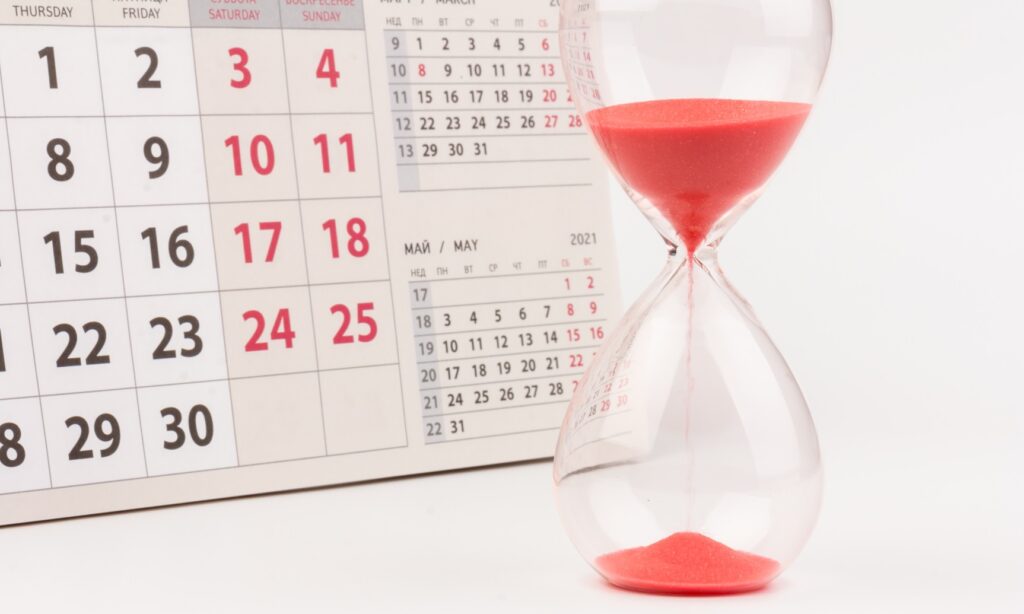When you’re working, you save between 8% and 10.5% of your monthly salary in your MediSave. This helps you pay for your healthcare expenses over your lifetime, especially when you retire and no longer have a regular income.
What is MediSave?
MediSave is a national medical savings scheme that helps individuals set aside part of their income to pay for their personal or approved dependents’ hospitalisation, day surgery, and certain outpatient expenses, as well as their healthcare needs in old age.
MediSave withdrawal limits have been carefully set to ensure that Singaporeans have sufficient savings in their MediSave Account for their basic healthcare needs in old age. The withdrawal limits are generally adequate to cover most of the charges incurred at subsidised inpatient wards and outpatient treatments.
Who is eligible for MediSave?
MediSave can be used for your medical expenses and those of your loved ones. Family members who can benefit from your MediSave include your spouse, children, parents, grandparents, or siblings. They can be of any nationality, except grandparents and siblings, who must be Singapore Citizens or Permanent Residents.
How can we use Medisave?
1. Premium Payments
MediSave can be used to pay for an individual’s health insurance premiums, or those of their approved dependents. For example, MediShield Life and ElderShield or CareShield Life premiums can be covered fully by MediSave. MediSave may also be used to pay for Integrated Shield Plan (IPs) and ElderShield Supplement premiums, up to withdrawal limits.
2. Inpatient Care
You can use MediSave to cover hospitalisation and day surgery expenses up to the approved limits. For hospitalisation, you can use up to $550 per day for the first two days; $400 per day thereafter for inpatient hospital charges, including daily ward charges, treatment fees, investigations, and medicines.
For day surgery, you can use up to $300 per day for hospital charges, including daily ward charges, daily treatment fees, investigations, and medicines. And for surgery, you can use between $250 and $7,550, depending on the complexity of the surgery. The withdrawal limits are based on a fixed limit from the Table of Surgical Procedures (TOSP).
3. Outpatient Care
MediSave helps to pay part or all of the cost of selected outpatient treatments, such as managing chronic diseases, vaccinations, health screenings, or CT/MRI scans at GPs, polyclinics, and Specialist Outpatient Clinics (SOCs).
You can use up to $500 for non-complex conditions, or $700 for complex chronic conditions per annum per patient, under the MediSave500/700 scheme.
You can use $300 of your MediSave per annum per patient to pay for CT, and MRI scans at SOCs and polyclinics to diagnose or treat your medical condition.
If you have children of your own, you can also use MediSave to pay for your children’s treatments, including health screenings and all vaccinations under the National Childhood Immunisation Schedule (NCIS).
MediSave can also pay for prolonged, regular treatments, such as cancer drug treatments, radiotherapy treatments, radiosurgery treatments, and renal dialysis treatments, which may be costly over time.
Patients aged 60 and above can use up to $300 per patient per year from their own or their spouse’s MediSave Account for outpatient medical treatment and approved vaccinations and screenings. Both should be aged 60 and above for the patient to tap on the spouse’s MediSave Account.
4. Long-Term Care
MediSave can cover the costs of rehabilitative care if you’re an inpatient at an approved community hospital, convalescent hospital, day rehabilitation centre, or day hospital.
MediSave can also be used to pay for palliative care at inpatient palliative care providers or home palliative care/day hospice care. In addition, if you have terminal cancer or end-stage organ failure, there will not be any withdrawal limit if the bill is paid using your MediSave.
Under MediSave Care, if you’re aged 30 and above and are assessed to be severely disabled, you can withdraw up to $200 per month from your and/or your spouse’s MediSave. A minimum of $5,000 will need to be set aside in MediSave.
Where can you use MediSave?
For a list of MediSave-approved clinics under the MediSave500/700 scheme, please visit the Community Health Assist Scheme (CHAS) webpage.
You can use your MediSave at all public healthcare institutions. This includes public hospitals, including Specialist Outpatient Clinics (SOCs), national specialty centres, and polyclinics.
MediSave can also be used at all participating medical institutions (MIs). MediSave-accredited non-public healthcare institutions include general practitioner (GP) clinics, private hospitals and specialist clinics, community hospitals, day rehabilitation centres, Specialist Outpatient Clinic (SOCs), and palliative care providers.
How to use MediSave to pay for medical fees?
To use MediSave for paying your medical fees, you should first inform the Public Healthcare Institutions (PHIs) and/or participating Medical Institutions (MIs) where you are receiving treatment, that you’d like to use MediSave to pay for your medical expenses.
Then, the PHI and/or participating MI should present you with a hardcopy or digital copy of the Medical Claims Authorisation Form (MCAF). You’ll need to sign the MCAF, which authorises the PHI and/or participating MI, to check how much you can utilize your healthcare plans. If you had previously given a standing authorisation for using MediSave, the MI would submit a claim on your behalf.
When your treatment is over, the PHI and/or participating MI will submit the medical claim on your behalf, and payment from your healthcare plans will be made directly to them. Upon approval of the claim, the Board and/or insurer will notify you accordingly.
How to claim with MediSave?
Have you already paid and are looking to be reimbursed for your medical expenses? To make a claim, you will need to submit relevant documents such as the finalised medical bill, healthcare payments, and claims statement and/or MediSave transaction statement to your employer or insurer before they can reimburse your MediSave.
You’ll need your Hospital Registration Number (HRN), a 13-character alphanumeric registration number, e.g., 522016A02Ql6E. This is especially useful for your employer or insurer because it helps them identify the specific claim you are reimbursing. You can find it under your “Healthcare payments and claims” statement, which is available in your Healthcare dashboard.
How much do I pay for MediSave?
When you’re working, you save between 8% and 10.5% of your monthly salary in your MediSave. If you are a person with your own business, work for yourself, and are in the position to realise a business profit or loss, you are considered a SEP (Self-Employed Person), in which case, your MediSave contribution is computed based on your age and NTI*, as assessed by the Inland Revenue Authority of Singapore (IRAS) or declared to CPF Board.
If you’re a SEP, this online contribution calculator allows you to compute your MediSave contribution amount.
- *NTI is your gross trade income minus all allowable business expenses, capital allowances and trade losses as determined by IRAS.
How to top up MediSave account?
With longer life expectancy and increasing healthcare costs, it’s a good idea to grow your savings for your healthcare expenses as you age. You can save up faster for your healthcare needs by making top-ups to your MediSave Account. What’s more, you can enjoy tax relief by making a cash top-up to your or your loved ones’ MediSave Account.
The amount for cash top-ups to a MediSave Account is subject to your Basic Healthcare Sum (BHS). Your BHS is the estimated savings you need for basic subsidised healthcare expenses in old age. It is adjusted yearly until you reach age 65 and will remain fixed for the rest of your life. Once your BHS has been reached, no further top-ups can be made to your MediSave Account. If you exceed your BHS from the top-up, your top-up will be fully refunded. You can use e-Cashier to check the amount of top-ups you can make.
Cash top-ups made are irreversible. Once you have decided to top up your MediSave Account, you can do so via the CPF website. All you have to do is log in to e-Cashier and pay via PayNow QR or eNETS.
What is the limit of MediSave 2022?
You can save up to the prevailing Basic Healthcare Sum (BHS) in your MediSave Account if you have not yet turned 65. The BHS from 1 January 2022 is $66,000 for all CPF members aged 65 years old and below in 2022. The BHS applicable to you will be adjusted yearly to account for increasing life expectancy and healthcare costs until you turn 65. The following table summarises the BHS for respective cohorts aged 65 and above in 2022:
| Age in 2022 | The year when the cohort turned age 65 | Cohort BHS (fixed for life) |
| 65 | 2022 | $66,000 |
| 66 | 2021 | $63,000 |
| 67 | 2020 | $60,000 |
| 68 | 2019 | $57,200 |
| 69 | 2018 | $54,500 |
| 70 | 2017 | $52,000 |
| 71 and above | 2016 or earlier | $49,800 |
How to withdraw MediSave?
Medical staff need your consent and authorisation to advise you on the funding and payment options available to you, and assist you in making a MediSave withdrawal. Here are the procedures for making a withdrawal:
1. Download the MCAF
MCAF(S): If you are visiting a non-public healthcare institution, or prefer to provide authorisation at each visit.
MCAF(M): If you want to perform a one-time authorisation for your current and future treatments at all participating institutions*. You may alternatively submit your MCAF(M) authorisation electronically via HealthHub.
* It is not compulsory to use the MCAF(M) form. You may submit a separate MCAF(S) form at each medical institution where you receive treatment. However, the MCAF(M) form is available for the convenience of submitting just one form for all treatments across all participating institutions. Do note that if you use your MediSave account for a family member, you must use MCAF(S).
2. Complete the form to withdraw funds from your MediSave account for approved treatment for you and your immediate family members, and/or to claim your MediShield Life/Integrated Shield Plan.
3. Submit the form to the MediSave-accredited medical institution where you receive treatment. MediSave-accredited institutions include public hospitals, private hospitals, polyclinics, MediSave-accredited General Practitioner (GP), and MediSave-accredited dental clinics.
MediSave withdrawal limits have been carefully set to balance helping Singaporeans afford the co-payment for their ongoing treatments and ensuring sufficient savings for their future healthcare needs in old age. The withdrawal limits are generally adequate to cover most of the charges incurred at subsidised inpatient wards and outpatient treatments.
FAQs about MediSave
CPF Board does not impose any administrative fee for using MediSave.
MediSave generally does not cover cosmetic surgery, accident and emergency (A&E) fees, and non-medical treatments such as ambulance transport. Please approach the medical institution to find out whether your treatment is covered under the MediSave scheme.
Spouse, parent, child, sibling, or grandchild who has sufficient MediSave balance may help their insured family members pay their insurance premiums for schemes such as MediShield Life, Integrated Shield Plans, or ElderShield/ElderShield Supplement.
MediSave savings that are not used will remain in the MediSave Account and earn interest of up to 5% per annum.





